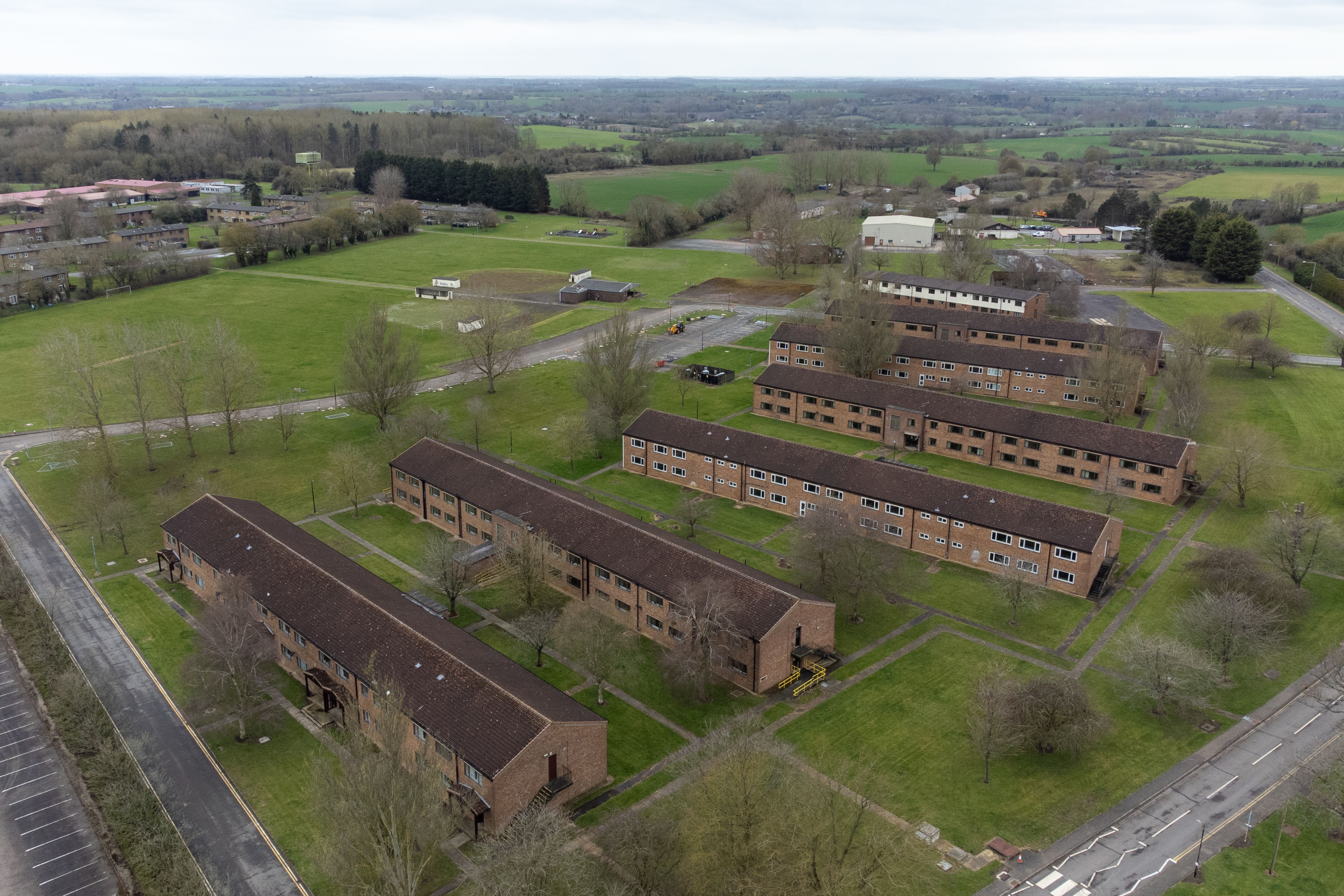Priti Patel blasts government’s ‘secretive’ five-year plan to house asylum seekers on RAF base
Suella Braverman used an ‘emergency’ planning bypass for a 12-month development at RAF Wethersfield, but leaked memo says it will be used for five years

Your support helps us to tell the story
From reproductive rights to climate change to Big Tech, The Independent is on the ground when the story is developing. Whether it's investigating the financials of Elon Musk's pro-Trump PAC or producing our latest documentary, 'The A Word', which shines a light on the American women fighting for reproductive rights, we know how important it is to parse out the facts from the messaging.
At such a critical moment in US history, we need reporters on the ground. Your donation allows us to keep sending journalists to speak to both sides of the story.
The Independent is trusted by Americans across the entire political spectrum. And unlike many other quality news outlets, we choose not to lock Americans out of our reporting and analysis with paywalls. We believe quality journalism should be available to everyone, paid for by those who can afford it.
Your support makes all the difference.Former home secretary Priti Patel has accused the government of being “secretive about its intentions” to house asylum seekers on a former military base.
Ministers claim that accommodating 1,700 migrants at RAF Wethersfield in Essex will be cheaper than hotels, but a leaked Home Office memo showed that “value for money” will not be achieved unless the site is used for five years.
Suella Braverman declared an “emergency” earlier this year to bypass normal planning permission for the development, but the process only allows 12-month use and is the subject of a looming legal challenge in the High Court.
Her predecessor, Ms Patel, who is the MP for the nearby constituency of Witham, has opposed the use of Wethersfield for asylum accommodation and maintained it is “unsuitable”.
In a letter to Ms Braverman and immigration minister Robert Jenrick on Monday, she said the leaked memo showed that they planned to use the site for longer than previously disclosed, and that local representatives had been given “no clarity” on timescales.
“The lack of a direct response to my questions relating to the length of time the Home Office plans to use the site for asylum accommodation gives the impression that the Home Office is being evasive,” she wrote.
“Clear answers now need to be provided by the Home Office and the government must be transparent rather than evasive. The lack of clarity has been alarming and staggering and I trust you will resolve this urgently.”
Ms Patel said that official government statements had said only that the site would be “temporary” and under “constant review”, adding: “This suggests that the government is being secretive about its intentions, but the local community and partners need to know what the government’s plans are.
“In planning terms, the temporary Class Q use is for 12 months only but it seems that the government are intending on using the site for longer than that.”
Ms Patel demanded urgent answers to questions on how long Wethersfield would be used for, financial modelling for the site and the average costs of housing asylum seekers there.

The internal Home Office memo, published byThe Telegraph, said a senior civil servant was “satisfied with value for money” for Wethersfield, the Scampton military base in Lincolnshire and a former prison in Sussex, subject to certain conditions.
Wethersfield and HMP Northeye, in Bexhill, would have to be used “across the five years planned for the sites”, the memo said, and Scampton would have to be used for three years.
It added: “This [analysis] assume we are in hotels for that period. If we are not, and/or if our costs are higher than we have estimated, there could be issues on value for money.”
The memo also said that the Bibby Stockholm barge in Dorset would need to hold 1,000 people to “provide value for money”. But the vessel’s capacity is 500 and it was evacuated on Friday following the discovery of dangerous legionella bacteria in the water system.
The Home Office moved the first asylum seekers into Wethersfield on 12 July, as a hearing over the base began at the High Court, and cases of tuberculosis and scabies have since been reported.
Local councils and residents have launched a legal challenge against the use of the former RAF base, as well as RAF Scampton and HMP Northeye, alleging that the government has acted unlawfully.
The High Court heard that Ms Braverman’s attempted planning bypass covered an “emergency” development for 12 months, but Home Office documents indicated that Wethersfield could be used for much longer.

Alex Goodman KC said Wethersfield could be occupied for up to five years or “as long as it remains expedient to do so”, amid rocketing Channel crossings, a record asylum backlog and the suspension of unlawful plans to deport small boat migrants to Rwanda.
He argued that a series of statutory assessments, including on the environmental impact of housing 1,700 asylum seekers at Wethersfield, were wrongly based on an assumption it would only be used for a year.
The councils are also arguing that the current use of hotels for asylum seekers is not an emergency that qualifies for emergency planning permission, despite lawyers representing Ms Braverman claiming a shortage of accommodation created a risk of homelessness.
Last month, a parliamentary committee was told that the Home Office was holding 5,000 empty hotel beds for asylum seekers as a “buffer” for expected high crossings.
The case could make or break the government’s “alternative accommodation” policy, which is core to Rishi Sunak’s vow to move migrants out of hotels.
A Home Office spokesperson said: “Delivering accommodation on surplus military sites will provide cheaper and more orderly, suitable accommodation for those arriving in small boats while helping to reduce the use of hotels.
“These accommodation sites will house asylum seekers in basic, safe and secure accommodation as they await a decision on their claim.
“We understand the concerns of local communities and will work closely with councils and key partners to manage the impact of using these sites, including liaising with local police to make sure appropriate arrangements are in place.”



Join our commenting forum
Join thought-provoking conversations, follow other Independent readers and see their replies
Comments